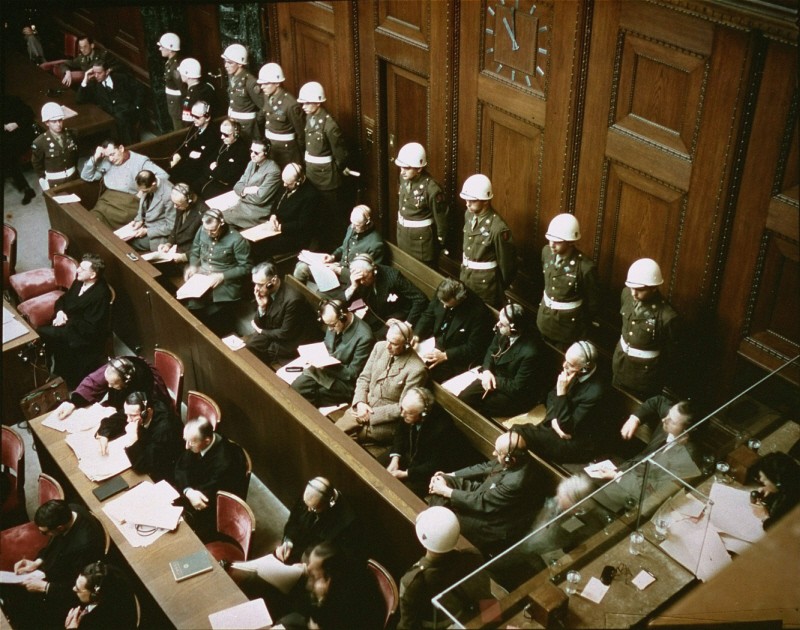
Hermann Göring
Hermann Göring was the second most powerful official in Nazi Germany. For much of Hitler's dictatorship, only Hitler himself was more powerful. Göring played a leading role in Germany’s plan to conquer eastern Europe. He also helped develop Nazi policies to rob and murder Jews. After World War II, the International Military Tribunal in Nuremberg sentenced Göring to death. Before his execution, Göring committed suicide.
Key Facts
-
1
For a time, Göring was the second most powerful official in Nazi Germany. Hitler named Göring his successor.
-
2
Göring played important roles in Nazi Germany’s economy and foreign policy. He helped make plans for Germany to wage war. He also helped Germany’s takeover of Austria and the Czech lands.
-
3
Göring also coordinated Nazi Germany’s Jewish policies. He ordered the development of the “Final Solution."
Early Life
Hermann Göring was born on January 12, 1893, in Rosenheim, Germany. His father was a German diplomat and colonial official. During World War I, Göring served as a fighter pilot. He won Germany’s highest military decoration. After the war, Göring lived in Sweden, where he worked in the airline industry.
Göring’s Role in the Nazi Rise to Power, 1922–1934
As one of Hitler’s closest compatriots, Göring played a key role in the Nazi rise to power.
Joining the Nazi Movement
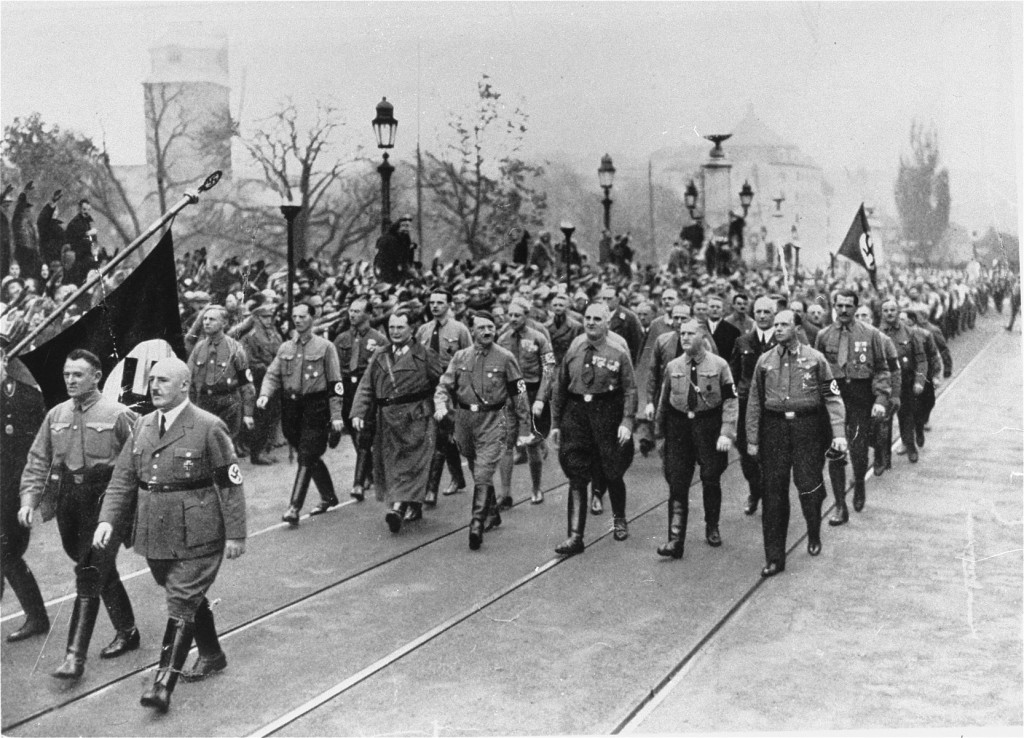
Göring moved back to Germany in 1922. He quickly joined the Nazi Party after hearing its leader, Adolf Hitler, speak. Hitler appointed Göring the leader of the Nazi Party’s paramilitary organization, the Storm Troopers (also called the SA or Sturmabteilung). Göring was seriously wounded in the failed Beer Hall Putsch in Munich in November 1923. To avoid arrest, he fled abroad. He only returned to Germany following an amnesty in 1927. Hitler welcomed him back into the Nazi Party but did not reappoint him to lead the SA.
Becoming the Reichstag President
Hitler thought Göring helped the Nazis look respectable because he was a decorated war hero. He also had connections with some leading German industrialists and conservatives. In 1928, Hitler chose Göring to run for a seat in the German parliament, the Reichstag. Göring won the election. In the 1932 Reichstag elections, the Nazi Party won more votes than any other party. Göring then became Reichstag President. He ensured that Germany’s conservative government could not pass any laws as long as it excluded Hitler from power.
Establishing Nazi Control
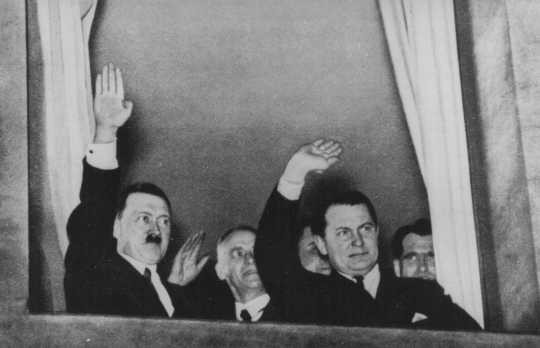
Göring had connections with advisers to Germany’s president. Göring used these connections to negotiate Hitler’s appointment as German Chancellor on January 30, 1933. Göring became one of two Nazi Party Ministers in the new government’s cabinet.
Specifically, he became Interior Minister of Prussia. Prussia was Germany’s largest state and included the capital, Berlin. Göring instructed the Prussian police to fire on anti-Nazi protesters. He deputized members of the SA and SS (Schutzstaffel or Protection Squadron) to serve as auxiliary police. After the Reichstag fire on February 27, 1933, he ordered mass arrests of left-wing Nazi opponents, who were held in concentration camps. As Reichstag President, Göring pressured representatives of other parties to support the Enabling Act. This act gave the Nazis the power to turn Germany into a one-party dictatorship.
Eliminating Threats to Nazi Rule
In April 1933, Göring became Minister President of Prussia. He created the Office of the Secret State Police (Geheime Staatspolizeiamt), which answered directly to him. It could arrest people it considered to be threats to Nazi rule and imprison them indefinitely in concentration camps. In 1934, Göring appointed the head of the SS, Heinrich Himmler, to lead the office and turn it into a nationwide police agency. This agency was known by its acronym, Gestapo (Geheime Staatspolizei).
By 1934, the SA had become so large and violent that it threatened Hitler’s popularity in Germany and the German military’s support for the Nazi regime. Göring urged Hitler to suppress the SA. On June 30, 1934, Hitler ordered the purge of the SA’s leadership. Göring and Himmler organized arrests and executions of SA leaders in Berlin, as well as of other political enemies. The purge of the SA made Hitler the uncontested dictator of Germany.
Göring’s Role in Germany’s Preparations for War
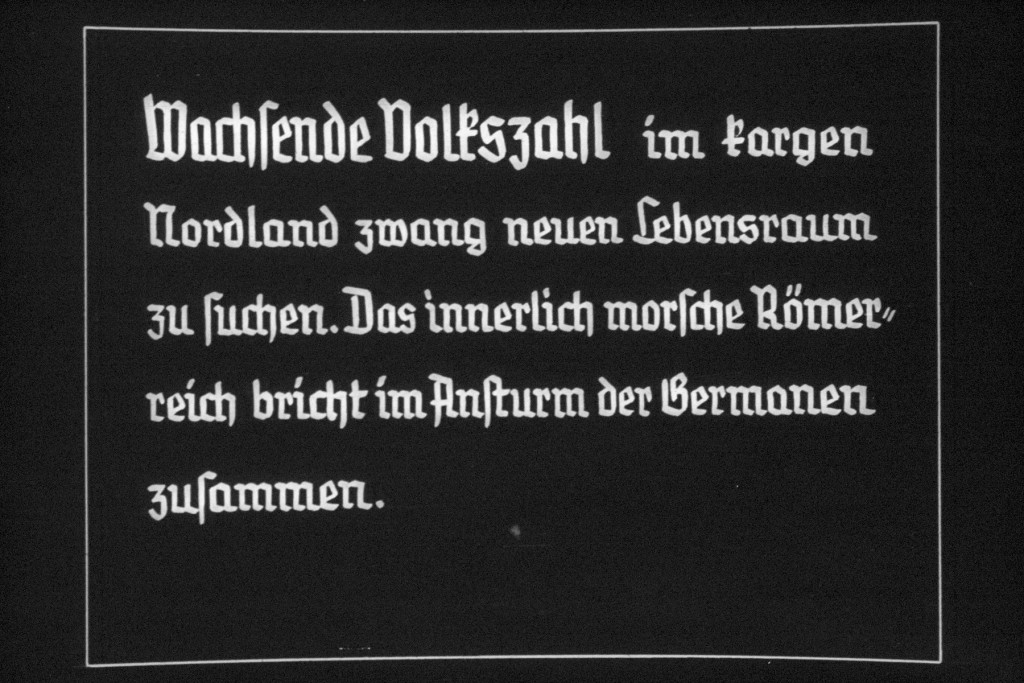
One of Adolf Hitler’s primary goals was to conquer Lebensraum (living space) in eastern Europe. He relied upon Göring to prepare Germany to fight the wars needed to achieve this goal. In December 1934, Hitler decreed that if he became incapacitated or died, Göring should take over his duties.
Rearming Germany
After Germany lost World War I, it signed the Treaty of Versailles. The treaty restricted Germany’s military forces, barred it from having an air force, and prohibited conscription for military service. The purpose of these restrictions was to prevent Germany from attacking its neighbors. Since Hitler intended for Germany to wage war for Lebensraum, he aimed to free Germany from these restrictions.
Shortly after he became German Chancellor in 1933, Hitler created the Air Ministry and put Göring in charge of it. The new ministry was supposed to develop Germany’s civilian air industry. Göring used it, however, to develop a secret military air force. In 1935, Hitler decreed that Germany would no longer follow the military restrictions in the Treaty of Versailles. He announced that Germany had an air force, the Luftwaffe. He appointed Göring to command it. The Luftwaffe was independent of the German army. As Luftwaffe commander-in-chief, Göring played a leading role in Germany’s military buildup in the late 1930s.
Retooling the Economy
Germany needed more than weapons to wage the wars that Hitler wanted. It also needed an economy that could support both its military forces and the German population for as long as the wars lasted.
In 1936, Hitler put Göring in charge of a new program called the Four Year Plan. Göring’s job was to ensure that Germany had the raw materials, industrial capacity, and labor force that it would need to wage war.
As head of the Four Year Plan, Göring directed the policies of the economic, labor, and agriculture ministries. In 1937, he created the Hermann Göring Works (Reichswerke Hermann Göring). This state-owned enterprise mined iron ore and produced steel. It soon expanded into arms production and other types of mining and heavy industry. In 1938 and 1939, Germany took over Austria and Czechoslovakia. Göring seized industries there and added them to the Hermann Göring Works.
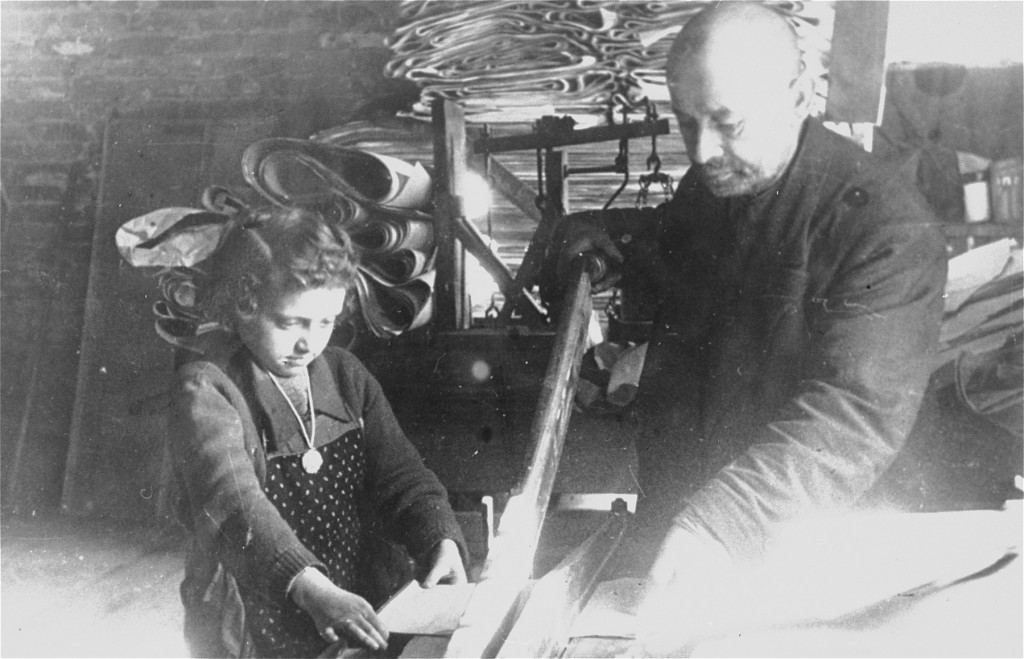
During World War II, Göring continued to seize the industrial assets of the countries Germany occupied. By 1941, the Hermann Göring Works was the largest industrial enterprise in Europe and possibly the world. More than half a million forced laborers worked in its factories and mines during World War II.
Negotiating German Expansion
Göring also played an active role in Nazi Germany’s foreign policy before World War II. Hitler sent him to Italy to smooth relations with its fascist government. Göring visited the Balkan countries to promote stronger economic and political ties with Germany. He also negotiated economic issues with Austria and Poland. With Hitler’s approval, Göring sent the Luftwaffe to aid fascist General Francisco Franco in the Spanish Civil War in 1936.
In March 1938, Göring helped to bring about the Anschluss (annexation of Austria) through his pressure on Austrian leaders and advice to Hitler. In September 1938, Göring arranged the Munich Conference and drafted the agreement that ceded Czechoslovakia’s Sudetenland to Germany.
In March 1939, Göring threatened to bomb the Czech capital, Prague. This allowed Germany to occupy the rest of the Czech lands without opposition.
Göring’s Role in the Nazi Persecution and Genocide of Jews
On November 9–10, 1938, Nazi leaders unleashed violent attacks against Jews, their businesses, and their places of worship. This event became known as Kristallnacht (The Night of Broken Glass). Afterward, Hitler put Göring in charge of coordinating Nazi Germany’s Jewish policy. Under Göring’s direction, the Nazi regime barred Jews from owning or participating in any business. Jews were forced to relinquish their assets and valuable personal property. German Jews were ordered to pay a fine of one billion Reichsmark.
In February 1939, Göring directed Reinhard Heydrich, the head of the German Security Police and SD (Sicherheitsdienst, the SS intelligence service), to establish the Central Office for Jewish Emigration. Its mission was to get rid of all the Jews in Germany through emigration or forcible removal.
After Germany invaded the Soviet Union in June 1941, Nazi leaders concluded that it was not feasible to remove all the Jews in German-controlled areas. On July 31, 1941, Göring ordered Heydrich to develop a plan for achieving the “Final Solution of the Jewish Question.” Heydrich’s plan called for murdering all the Jews in Europe.
Göring’s Fall from Favor during World War II
Göring’s Luftwaffe helped Nazi Germany achieve a swift victory over Poland in 1939 and France in spring 1940. Hitler rewarded him with the title of Reich Marshal (Reichsmarschall). Göring took charge of looting the assets of every country that German forces occupied.
In late 1940, however, the Luftwaffe failed to fulfill Göring’s promise that it would defeat Britain’s air defenses. By 1942, it was clear that the bureaucracy Göring had created was bloated and inefficient. Hitler reassigned many of Göring’s duties to other officials in 1942 and 1943. Göring fell further out of Hitler’s favor when the Luftwaffe proved unable to protect Germany from Allied bombing raids.
In the last years of the war, Göring increasingly ignored his duties. He preferred to lead a lavish lifestyle on his estates, which were filled with precious art and jewelry that he acquired through corruption or looting.
The Last Days of the War
In April 1945, as the war came to an end, Nazi leaders scrambled for power. They plotted next steps in the wake of Nazi Germany’s impending defeat. Some, like Joseph Goebbels and Martin Bormann, stayed in the Führer’s bunker in Berlin alongside Hitler. Göring, however, spent the last week of April on the Obersalzberg. This mountain in the Alps was the site of a large Nazi complex. A number of Nazi leaders had sent their families to the mountain. Many hoped Hitler too would seek refuge there. But Hitler remained in Berlin.
On April 23, Göring sent a telegram to Hitler requesting authorization to take over as Hitler's successor should Hitler lose his freedom. This was in accordance with a previous decree, authorizing Göring to act in Hitler’s place should Hitler be incapacitated.
Encouraged by Göring’s rival Bormann, Hitler responded with outrage to the telegram. He denounced Göring as a traitor and stripped him of all his offices. Göring was placed under house arrest at his home on the Obersalzberg. He was then transferred to his castle near the Austrian city of Salzburg. Hitler confirmed Göring’s fall from grace in his last will and testament, dictated and signed on April 29. In place of Göring, Hitler chose Admiral Karl Dönitz to succeed him as head of state. Hitler committed suicide on April 30, 1945.
Arrest, Trial, and Death
At the end of World War II, Göring surrendered to members of the US 7th Army on May 7, 1945.
From November 1945 until September 1946, Göring was the lead defendant in the trial of Nazi leaders before the International Military Tribunal (IMT) in Nuremberg. During the trial, he showed no remorse, defended Hitler, and proudly admitted to his role in planning and waging Nazi Germany’s wars of aggression.
On October 1, 1946, the IMT found Göring guilty of conspiracy to commit crimes against peace, crimes against peace, war crimes, and crimes against humanity. The court sentenced him to death by hanging. His execution was scheduled for October 15, 1946.
On the night before his execution, Göring committed suicide by taking cyanide.
Critical Thinking Questions
The Nazi regime required the active help or cooperation of professionals working in diverse fields who in many instances were not convinced Nazis. How did Goering and other Nazi leaders use their positions of power to put their radical ideas into practice?
Across Europe, the Nazis found countless willing helpers who collaborated or were complicit in their crimes. What motives and pressures led so many individuals to persecute, to murder, or to abandon their fellow human beings?

